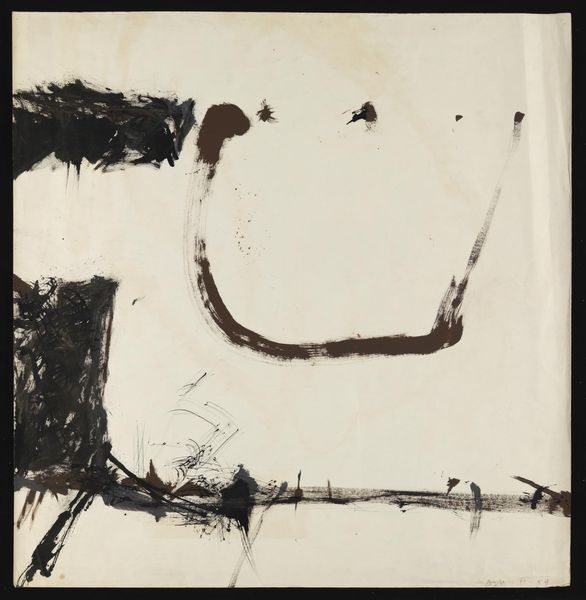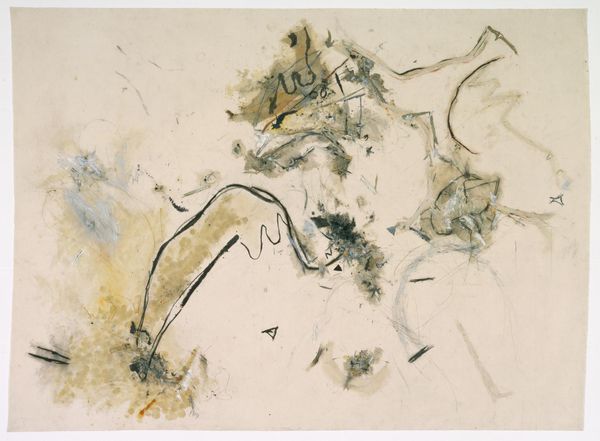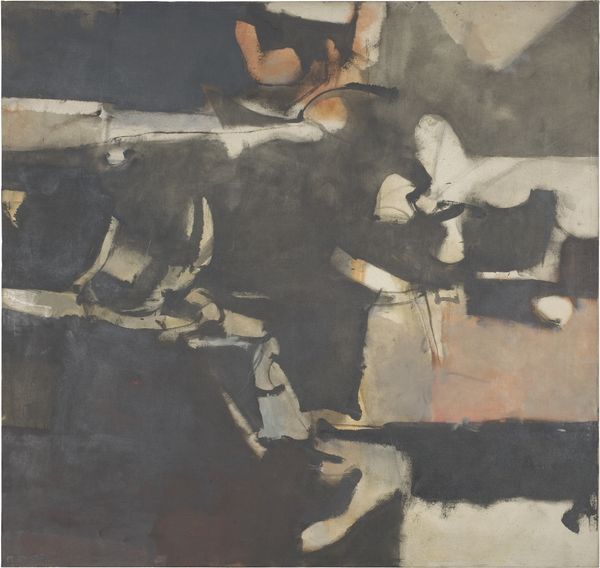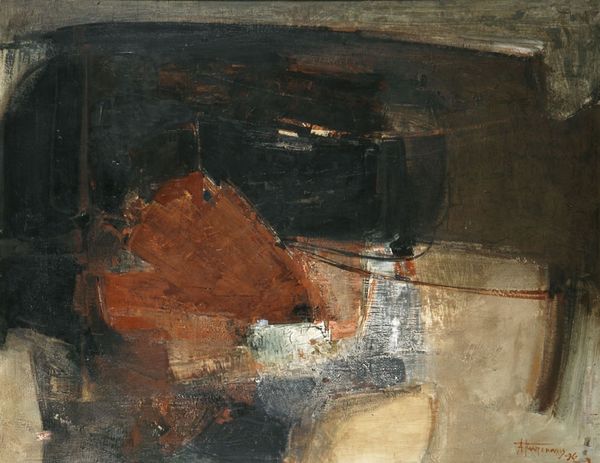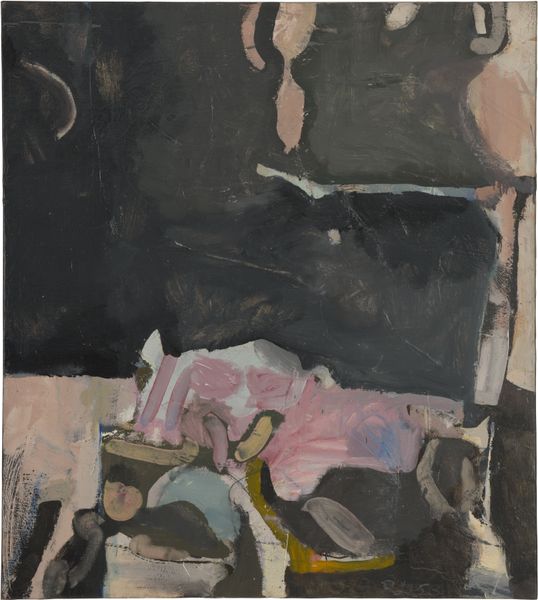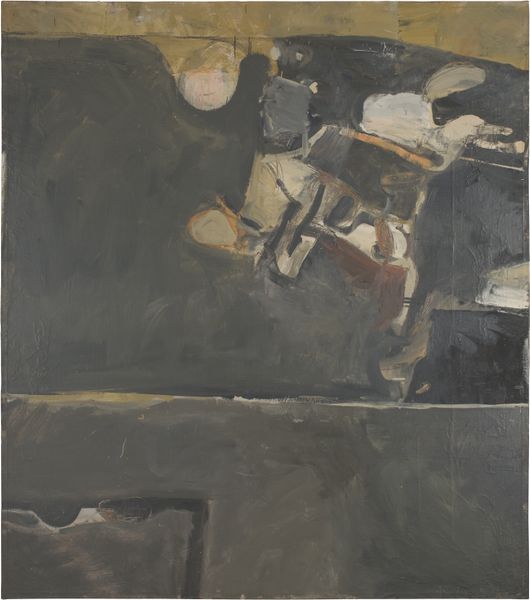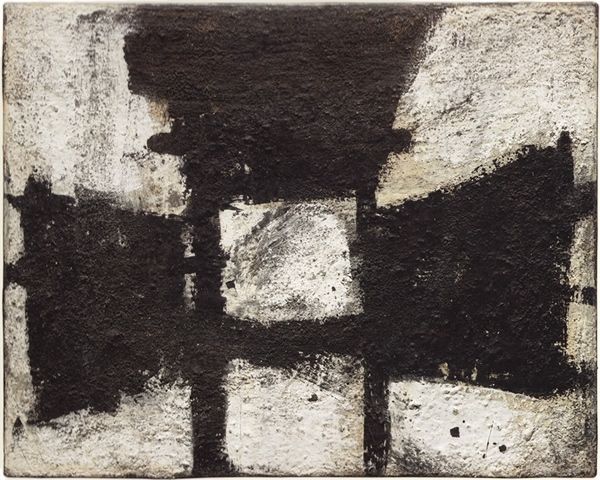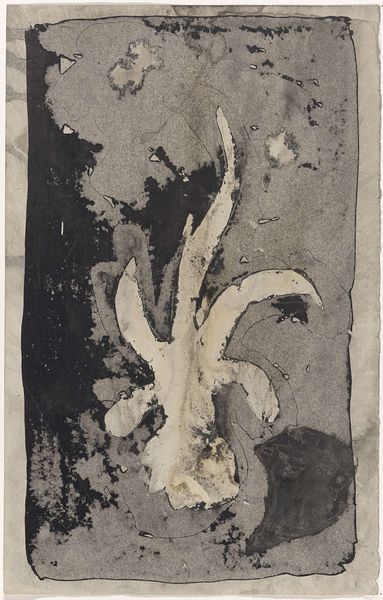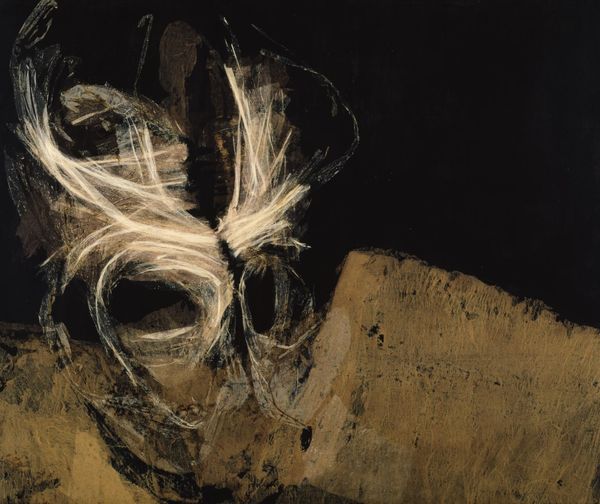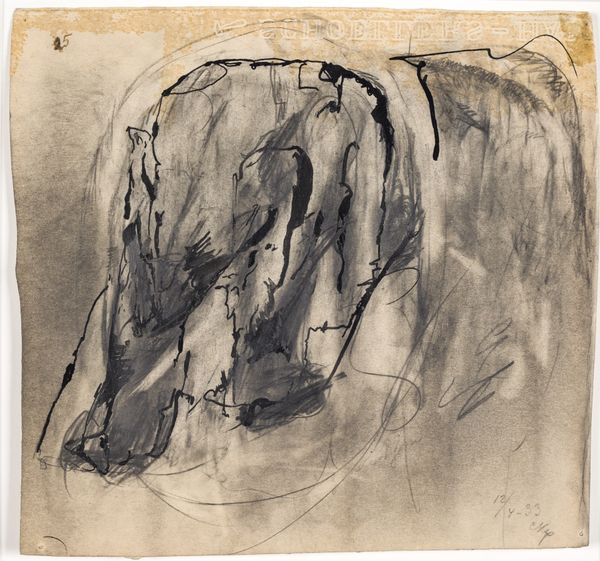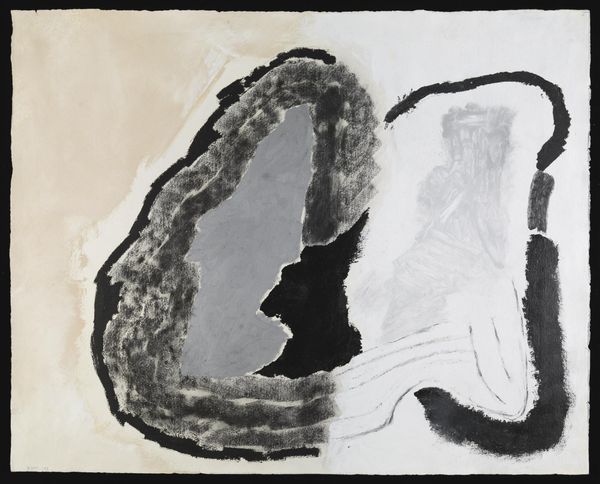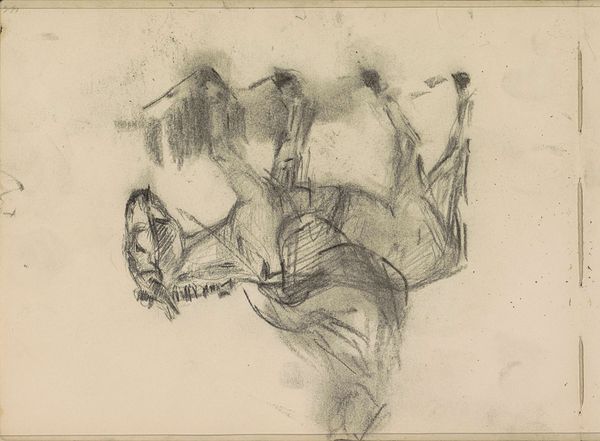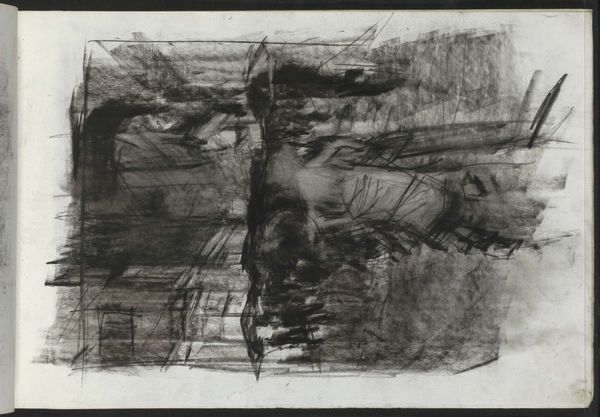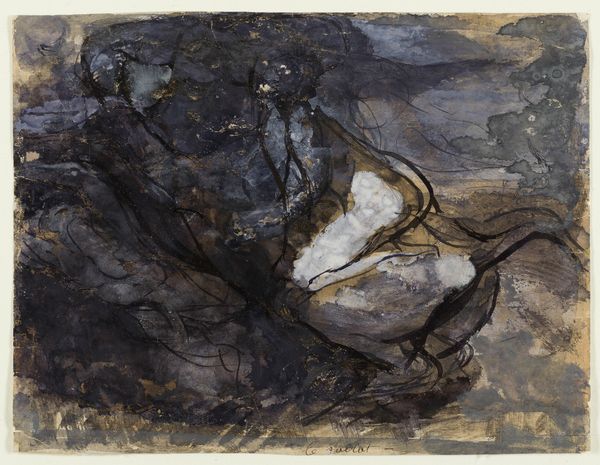
Dimensions: unconfirmed: 760 x 1020 mm
Copyright: © The estate of Aubrey Williams | CC-BY-NC-ND 4.0 DEED, Photo: Tate
Curator: Aubrey Williams' "Tribal Mark," residing here at the Tate Britain, immediately strikes me with its raw, almost primal energy. Editor: I see that too. It has a stark, somber palette—but the arrangement of shapes creates a fascinating sense of dynamic tension. Curator: Indeed, the rough impasto and textural variation lend an almost archaeological quality. The white markings read like unearthed symbols. Editor: Precisely. The title evokes a sense of cultural identity, but these abstract forms… are they echoes of ritual, a lost visual language? Curator: One might consider how Williams grapples with form here; there's a disruption of stable signifiers, a visual deconstruction inviting multifaceted interpretation. Editor: It certainly resonates with ideas about how cultural memory persists, fragmented, in our collective consciousness. It's powerful, in its ambiguity. Curator: It is, quite. The painting remains a site of constant reappraisal, I find. Editor: A compelling testament to the enduring power of symbols, then.
Comments
tatebritain 9 months ago
⋮
http://www.tate.org.uk/art/artworks/williams-tribal-mark-t13342
Join the conversation
Join millions of artists and users on Artera today and experience the ultimate creative platform.
tatebritain 9 months ago
⋮
Tribal Mark II depicts a group of bone-like forms set between two areas of deep shadow. Similar forms occur in other works by Aubrey Williams and could be read as symbols or glyphs. This painting is characteristic of the style the artist was exploring through the late 1950s and early 1960s as he engaged with developments in abstract art. The imagery also has its roots in Williams’s experiences as an agricultural field officer in Guyana in the late 1940s where he met Warao people, learned their language, observed their customs and rituals, and recorded their stories. Gallery label, January 2025
